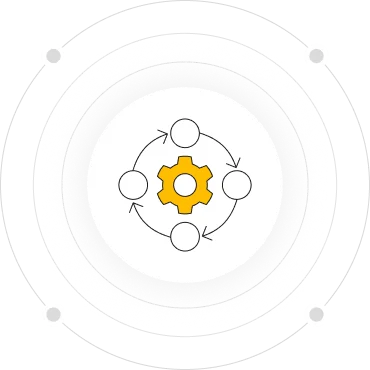Native Linguists with Industry Expertise
So your message is accurate and authentic.


AI is powerful—but it isn’t perfect. A small nuance missed can change the meaning entirely, risking your credibility or message impact. Our human QA experts bring clarity, context, and cultural understanding—ensuring your AI voice outputs are truly audience-ready.
High-quality transcripts are achieved through expert correction of grammar, context, and specialized terminology.
Learn MoreAI voiceovers are expertly fine-tuned for tone, pacing, and emotion to sound more natural and engaging.
Learn MoreEnsure meaning never gets lost. We validate AI interpretations for clarity, correctness, and cultural appropriateness.
Learn MoreRefine audio translations with expert human QA to ensure clarity, accuracy, and cultural relevance for global audiences.
Learn MoreOur team of expert linguists reviews grammar, punctuation, and terminology. They ensure every line meets high standards of language accuracy.
Specialists evaluate the content for tone, intent, and context. They make sure each message is appropriate, meaningful, and true to the original.
Cultural experts assess the content for local relevance, customs, and sensitivities. They adapt phrasing and delivery to resonate with each target audience.

Specialists evaluate the content for tone, intent, and context. They make sure each message is appropriate, meaningful, and true to the original.
Cultural experts assess the content for local relevance, customs, and sensitivities. They adapt phrasing and delivery to resonate with each target audience.
A dedicated reviewer performs a final pass to fine-tune rhythm, pronunciation, and flow, guaranteeing the audio sounds natural and emotionally engaging.

So your message is accurate and authentic.
We keep up with AI speed without sacrificing quality.
From one video to a full content library, we handle it all.
Built to meet your unique speech and language needs.
“We rely on AI for speed, but MarsVoice ensures our content is crystal-clear and culturally correct. Their Human QA team caught critical errors our tools missed—absolutely essential for our international product launches.”
“We send MarsVoice AI-generated dubs, subtitles, and transcripts—and they send back broadcast-ready content. Their QA reports are detailed, their edits are flawless, and their team gets context like no one else.”
“Our multilingual training videos now sound native in every language. MarsVoice’s QA team helped us improve not just grammar, but tone, emphasis, and clarity. Students notice the difference.”
“Accuracy in medical content is non-negotiable. MarsVoice’s human QA helped us clean up AI transcriptions and voiceovers to meet compliance and clarity standards. We trust them with sensitive data.”
“We launched a campaign in five languages using AI translations—but MarsVoice’s QA ensured every voiceover felt on-brand and culturally spot-on. It made a huge difference in local engagement.”